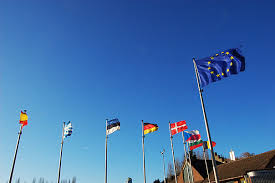9 EU countries oppose market reform ahead of energy talks

- Country:
- Belgium
Nine European Union countries, including heavyweight Germany, have joined forces to say they will not support an overhaul of the electricity market ahead of an emergency meeting of the bloc's energy ministers Tuesday in Luxembourg.
The energy crisis impacting consumers' bills and businesses has been widely acknowledged by EU leaders, but setting up a common response within the bloc's 27 member states to weather its impact is proving problematic.
With the hike in energy prices expected to last at least until spring, member countries agreed last week that a series of measures proposed by the EU executive arm, including bill payment deferrals and tax cuts, should be implemented to tackle the short term effects.
But a rift has emerged between countries calling for a thorough reform of the bloc's energy market — among them France and Spain — and those who believe the crisis is only temporary and does not require radical market changes.
“As the price spikes have global drivers, we should be very careful before interfering in the design of internal energy markets,'' the nine countries wrote in a statement released Monday. “This will not be a remedy to mitigate the current rising energy prices linked to fossil fuels markets.'' Luxembourg, Austria, Germany, Denmark, Estonia, Finland, Ireland, Latvia and the Netherlands said transparent and competitive markets are the guarantee for competitive prices for final users.
“We need a well-integrated EU energy market that functions based on market mechanisms and good interconnections as part of the solution to strengthen the resilience to price shocks,'' they said.
The group called for the deployment of renewable energy sources and “further interconnection with a view to the 15% electricity interconnection target by 2030.'' The main reason behind the sharp spike is an increased global demand for energy, and in particular gas. According to EU officials, gas prices have increased by more than 170% since the start of the year.
Among proposals put forward by Spain is the idea of setting up a joint procurement program for gas reserves. Currently, the EU depends heavily on imported gas, mainly from Russia.
(This story has not been edited by Devdiscourse staff and is auto-generated from a syndicated feed.)
ALSO READ
Finland mourns pupil killed in school shooting
Ex-soccer chief Rubiales handed court summons on return to Spain, source says
Finland mourns 12-year old boy killed in school shooting
Former Spanish soccer federation head Luis Rubiales set to return to Spain amid corruption probe
Finland, Ukraine sign 10-year security agreement










